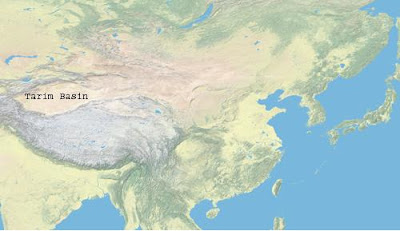Tribute to a Korean War Veteran, Penn Alum
I was researching for my Korean War class and made some very interesting discoveries about a navy officer. He went to Penn ('49) and was noted prominently in the newspaper, The Daily Pennsylvanian in an article from September 22, 1951. His name is Jack Siegal and he was an ensign in the US Navy during the Korean War doing radio broadcasting and other communications.
The photos are from Wolmi-Do, an island assaulted during the Incheon Landing. His story is pretty incredible. He is even mentioned in a war novel by James Brady, The Marine: A Novel of War from Guadalcanal to Korea.
The photos are from Wolmi-Do, an island assaulted during the Incheon Landing. His story is pretty incredible. He is even mentioned in a war novel by James Brady, The Marine: A Novel of War from Guadalcanal to Korea.
An
alum of the ROTC program who had gone to Penn named Jack Siegal, ’49. The article
begins by introducing the ROTC and highlighting criticism of the program.
“Many scoffed at the more progressive [ROTC] program
which the Navy launched following the Second World War. Many said that the Navy
was pouring its money down the drain…students were not interested in the Navy
but…in getting a free college education. Furthermore, no officer trained
without the strict military discipline and training at Annapolis could ever
make a really capable officer. So the critics believed.”[1]
The article then goes on to
describe how Siegal used his experiences and skills from Penn to great effect
in the military.
“While at Penn, he spent most of his extracurricular
time at WXPN where he became one of their top men. He ran the gamut of programs
from disc jockey and football game commentator to master of ceremonies…Now Jack
Siegal has been assigned to the Korean area to gather radio and television data
for the Navy.”[2]
Not was he just using his skills,
he was exceptionally competent in communications. He was intimately involved in
the landing at Incheon. “Edward R. Murrow of CBS … [broadcasted] an eyewitness
report by Ensign Jack Siegal aboard the flagship, describing the power and
accuracy of the covering bombardment and the Marine assault…”[3]
The recording is kept by the national archives and details various parts of the
landing from the aerial bombardment to the smooth amphibious landing,
highlighting the assault on Wolmi-Do Island.[4]
He was later assigned to a daring reconnaissance mission on the road to Seoul,
which was highlighted in national newspapers.
“Siegal was to go with a thirteen man reconnaissance
patrol across the Han River into enemy territory. With him he carried a tape
recorder so that he could record the other side (sic). After reaching the enemy
bank in two small rubber rafts at night, they found the coast clear and
signaled for a larger group to follow in amphibious tractors. This second group
was fired upon and turned back.
The alerted North Koreans discovered Siegal and his
men and turned their guns to them. there was no alternative but to strip and
swim for the other side of the river. during the course of the 45 minute swim,
two of the group were wounded, but they all managed to return to the United
Nation’s Forces.”[5]
He went on to assist with coverage
of the cease-fire being brokered in Korea. “[Jack Siegal] also arranged radio
and television coverage of the Korean War truce negotiations at Kaesong and
Panmunjom.”[6] Brady’s book
and the articles both detail the accomplishments of this young officer and
speak to the wider achievements of the ROTC program.
Although Siegal
was an accomplished communications ensign during the war, what is truly
remarkable is that these experiences would come to define Siegal’s career.
After the war, Siegal continued as a reporter for CBS-TV and established a
broadcast group in Vermont to serve the Montreal area.[7]
After several new Canadian laws made his radio business in Vermont unviable,
Siegal moved to Los Angeles in 1970 and founded a company with two Korean
business partners called Chagal Communications. Chagal Communications oversaw
several Korean interest radio stations to serve the quickly growing Korean
communities there. His radios broadcasted over FM and were very influential. “[Siegal]
helped convert millions of Los Angeles Listeners to FM radio.”[8]
Many of these same stations continue to broadcast today. His experience at Penn
and during the Korean war played a big role in shaping his career path.
Moreover, he was a success story of the Navy’s ROTC program.
F. Miller SAS '13
[1] Clifford Hood, "Former NROTC Man Wins Merit in
Korea," The Daily Pennsylvanian (Philadelphia,
PA), September 22, 1950. This story was reported nationally and ranged from a
3-line article in the New York Times to a lengthy essay in The Victoria Advocate.
[2] Ibid.
[3] James Brady, The Marine: A Novel of War from Guadalcanal to
Korea (New York: St.
Martin's Griffin, 2004), 232. A recording
made by Jack Siegal of the landing is available from the national
archives for download at
http://estore.archives.gov/ProductInfo/N-09-AUDIO13.aspx (last checked December
7, 2011)
[4] Ensign Jack Siegal
Recording/Wolmi-Do Photos,
by Jack Siegal, CD, 1950. From the National Archives, Washington D.C.
[5] Clifford Hood, "Former NROTC Man Wins Merit in
Korea," The Daily Pennsylvanian (Philadelphia,
PA), September 22, 1950.
[6] "Jack L. Siegal, 75; His Chagal Cos. Owned Radio
Stations in LA," Los Angeles Times, July 19,
2004,
[7] "Past President Jack L. Siegal," Rotary Club Of
Santa Monica, accessed December 7,
2011,
http://www.rotaryclubofsantamonica.org/Rotary%20Remembers/2004%202005/jack_siegal.htm.
[8] Ibid.






Comments
Post a Comment
We follow the House Rules as outlined by the BBC here.